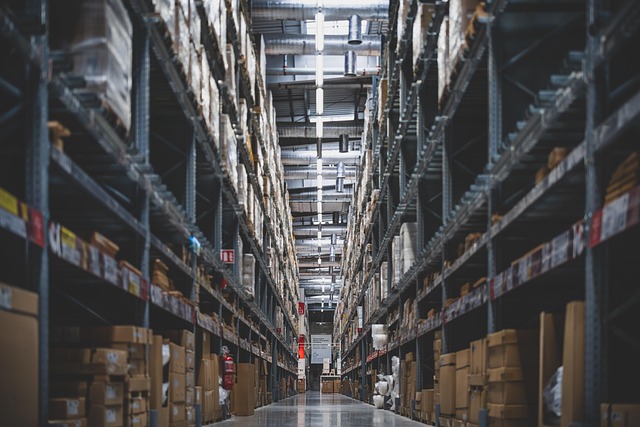Understanding Packing Jobs: Roles, Skills, and Career Paths
Packing jobs form an essential part of supply chains worldwide, ensuring products reach consumers safely and efficiently. These positions span various industries, from warehouses and manufacturing plants to e-commerce fulfillment centers. Whether you're considering entry into the field or exploring career advancement, understanding what packing roles entail can help you make informed decisions about this practical and accessible career path.

Packing positions represent a significant segment of the global workforce, particularly as online shopping and logistics networks continue to expand. These roles involve preparing products for shipment, ensuring items are protected during transit, and maintaining quality standards throughout the packaging process. Workers in packing jobs typically handle materials ranging from small consumer goods to large industrial components, depending on their specific industry and employer.
The work environment varies considerably across sectors. Warehouse packers often work in large distribution centers with conveyor systems and automated equipment, while those in smaller operations may perform more manual tasks. Regardless of setting, packing jobs require attention to detail, physical stamina, and the ability to follow established procedures to maintain efficiency and safety standards.
Packing Careers Explained
Packing careers offer multiple pathways for professional development. Entry-level positions typically involve basic packaging tasks such as placing items in boxes, applying labels, and preparing shipments for transport. As workers gain experience, they may advance to supervisory roles overseeing teams of packers, quality control positions ensuring packaging standards are met, or specialized roles operating complex machinery.
Many industries employ packing professionals, including food and beverage manufacturing, pharmaceuticals, electronics, retail distribution, and automotive parts. Each sector has unique requirements and standards. Pharmaceutical packing, for instance, demands strict adherence to regulatory guidelines, while e-commerce fulfillment centers emphasize speed and accuracy to meet customer delivery expectations.
Career progression often depends on developing additional skills such as inventory management, equipment operation, or team leadership. Some workers transition into related logistics roles like shipping coordination, warehouse management, or supply chain analysis. The foundational experience gained in packing positions provides valuable insight into broader operational processes.
What Skills Are Required for Packing Roles?
Successful packing professionals possess a combination of physical capabilities and cognitive skills. Physical stamina is essential, as the work often involves standing for extended periods, lifting boxes, and performing repetitive motions. Most positions require the ability to lift items weighing between 20 and 50 pounds regularly, though specific requirements vary by employer and industry.
Attention to detail ranks among the most critical skills for packing roles. Workers must accurately match products with orders, apply correct labels, and identify damaged or defective items before shipment. Even small errors can result in customer dissatisfaction, returned products, or compliance issues, particularly in regulated industries.
Time management and efficiency are equally important, especially in high-volume environments. Packers must maintain productivity standards while ensuring quality, often working within tight deadlines to meet shipping schedules. Basic math skills help with counting items, calculating dimensions, and understanding weight requirements for different shipping methods.
Technical aptitude benefits those working with automated packing equipment, barcode scanners, or inventory management systems. While extensive training is typically provided, comfort with technology and willingness to learn new systems facilitate success. Communication skills support effective teamwork and enable workers to report issues, coordinate with supervisors, and contribute to process improvements.
What Are The Considerations Regarding Compensation for Packing Roles?
Compensation for packing positions varies significantly based on geographic location, industry, employer size, experience level, and specific job responsibilities. While we cannot provide specific salary ranges as they fluctuate over time and differ widely by region, understanding the factors that influence compensation helps set realistic expectations.
Entry-level packing positions typically offer hourly wages that reflect the skill requirements and physical demands of the work. Geographic location plays a substantial role, with urban areas and regions with higher costs of living generally offering elevated pay rates compared to rural locations. Industries with specialized requirements, such as pharmaceuticals or electronics, may provide higher compensation than general warehouse packing roles.
Experience and additional qualifications can positively impact earning potential. Workers who operate forklifts, manage inventory systems, or hold supervisory responsibilities often receive higher compensation than those in basic packing roles. Shift differentials for evening, overnight, or weekend work provide additional earning opportunities in many facilities.
Benefits packages vary considerably among employers. Larger companies and unionized workplaces may offer comprehensive health insurance, retirement contributions, paid time off, and other benefits, while smaller operations might provide more limited packages. Seasonal employment in industries like retail during holiday periods may offer temporary opportunities with different compensation structures than permanent positions.
Career Development and Advancement Opportunities
Packing jobs serve as entry points into broader logistics and supply chain careers for many workers. Demonstrating reliability, efficiency, and attention to quality can lead to increased responsibilities and advancement opportunities within organizations. Many companies prefer promoting from within, making packing positions valuable starting points for long-term career development.
Professional development opportunities include training programs for equipment operation, safety certifications, and leadership development courses. Some employers offer tuition assistance or apprenticeship programs that enable workers to gain additional qualifications while employed. Industry certifications in areas like logistics, supply chain management, or quality control can enhance career prospects and earning potential.
The skills developed in packing roles transfer well to related positions throughout supply chain operations. Understanding packaging processes provides practical knowledge applicable to inventory management, shipping coordination, procurement, and operational planning. Workers who demonstrate initiative and seek continuous improvement often find pathways to supervisory, management, or specialized technical roles.
Conclusion
Packing jobs provide accessible entry into the workforce while offering pathways for career development across multiple industries. These positions require a blend of physical capability, attention to detail, and efficiency that supports the smooth operation of supply chains worldwide. Understanding the skills required, career progression possibilities, and factors influencing compensation enables individuals to make informed decisions about pursuing opportunities in this essential field. As logistics and e-commerce continue expanding, packing roles remain integral to connecting products with consumers efficiently and reliably.




